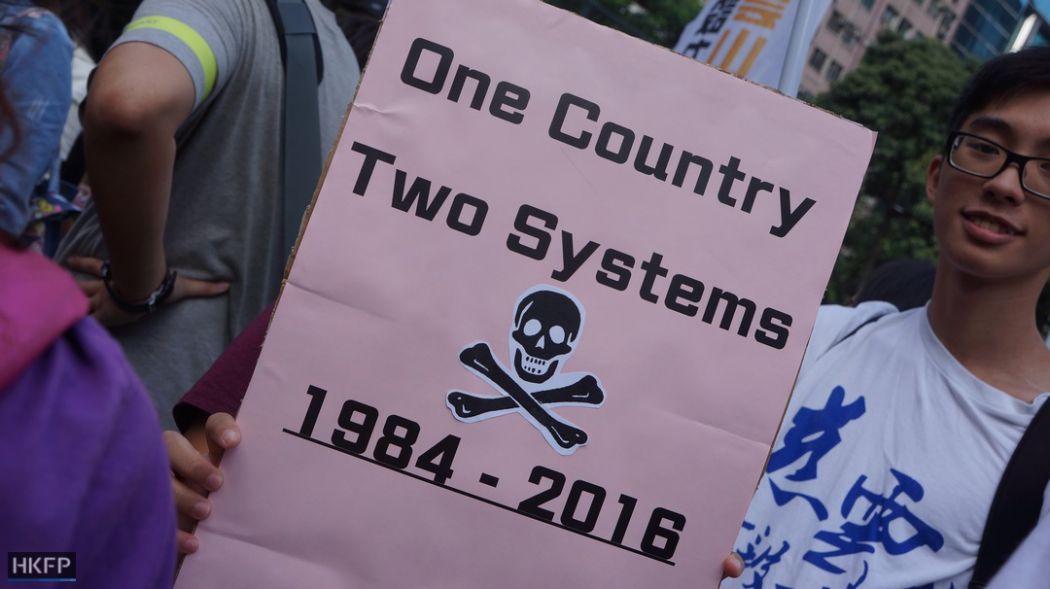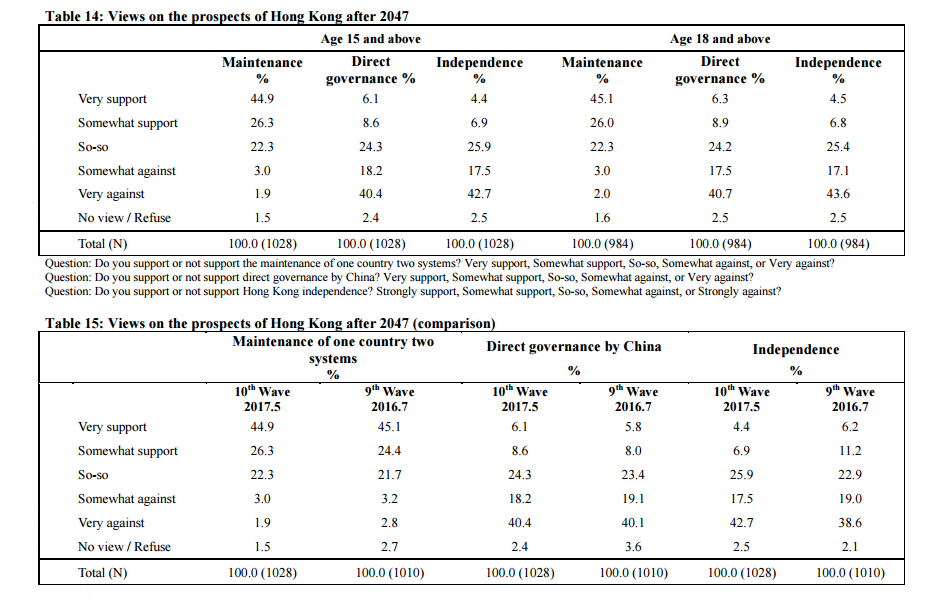Two thirds of people surveyed by the Chinese University say that society has declined since the city’s handover to China 20 years ago.
But when asked about options for Hong Kong’s future after 2047 – the year in which its 50 years of autonomy may expire – more than 70 per cent said it should maintain the “One Country, Two Systems” principle.
Support for independence, meanwhile, stood at 11.4 per cent – a six per cent drop since a similar survey last year.

Around 20 per cent of those interviewed said they had considered emigrating overseas.
The Centre for Communication and Public Opinion Survey of the Chinese University of Hong Kong interviewed 1,028 people over 15 years of age by phone between May 23 and June 2.
The results showed that 62.9 per cent of the interviewees felt society had declined, whilst 15.4 per cent said it had improved. 33.4 per cent of the respondents said they were pessimistic about the future development of Hong Kong, whilst 29.1 per cent said they were optimistic.
Respondents had better trust in the Hong Kong and central government compared to the past, at 4.86 and 4.91 points out of ten respectively, but both scores were lower than five – indicating “so-so.”
The satisfaction score on the implementation of “One Country, Two Systems” by the central government also increased to 5.17, from last year’s 4.77.

Drop in support for independence
Respondents were also given three scenarios for Hong Kong’s future after 2047, in which they can give different levels of responses from “very much support” to “so-so” to “very against.” Support for maintaining “One Country, Two Systems” or “Direct governance by China” did not change significantly when compared to last year.
But support for independence dropped a significant amount – by 24 per cent in the age group 15-24, compared to the 39.2 per cent support seen in a similar survey conducted last July. The rate of those who oppose independence in the age group increased from 26 per cent last year to 43 per cent.
In the survey, the age group 25-39 voiced the most support for independence, at 21.9 per cent – a slight decrease from 23.9 per cent last year. However, those who oppose independence in the same age group dropped from 45.3 per cent last year to 34.2 per cent this year.

Calm society in reflections
Francis Lee Lap-fung, professor at the university’s journalism school, said that there was an increase in approval of the local and national governments, and the implementation of “One Country, Two Systems,” but the results were still at steady levels, Ming Pao reported.
“There have not been any huge controversies recently, the social atmosphere has been relatively calm,” he said, adding that the public may be anticipating the arrival of a new administration on July 1, thus the increased scores.
A decrease in young people’s support for independence was not expected, Lee said. He suggested it may be because of increased discussion relating to localism and independence over the past year, which led to young people reflecting.
Another reason, he said, could be the absence of a prominent figure in the localist camp, such as Hong Kong Indigenous spokesperson Edward Leung Tin-kei.
